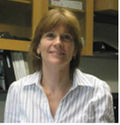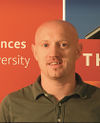Metal ion complexes in biological imaging
The rich magnetic, radiochemical and photophysical properties of metal ions will be featured in biological imaging applications. A range of imaging modalities will be covered in this symposium including positron emission tomography (PET) with radiotracers, optical imaging with fluorescent metal ion complexes, and magnetic resonance imaging (MRI) with lanthanide complexes. Presented research will range from the development of basic chemistry and synthesis of metal-based imaging agents to applications in cell culture or in animals. Challenges in the field of biological imaging will be emphasized. The preparation of conjugated complexes to facilitate the delivery of metal ion imaging agents into cells will be presented. Other lectures will focus on metal ion complexes that selectively bind to important biological receptors such as those found on tumor cells. A third challenge, the preparation of responsive imaging agents that report on biochemical variables such as pH, temperature or enzyme activity, will be addressed in this symposium.
Session organizer
Prof. Janet Morrow is a professor and associate chair for the chemistry department at the University at Buffalo. Dr. Morrow specializes in the synthesis of inorganic complexes for medicinal, diagnostic, sensing or catalytic applications.
Confirmed speakers
- Dr. Robert H. Mach, Director of Radiological Chemistry Laboratory, Washington University School of Medicine: "The Use of Radiometals in Nuclear Medicine Imaging Procedures".
- Prof. Robert Doyle, Syracuse University, Department of Chemistry: "Cobalamin based delivery/targeting from Rhenium to Rotavirus."
- Dr. Mark Bartholoma, Harvard Medical School, Cambridge, MA, and Prof. Jon Zubieta, Syracuse University, Department of Chemistry: "Re(CO)3 Thymidine Complexes as Potential Anticancer Agents: Synthesis, Cytotoxicity and Insight into the Mechanism of Action.."



